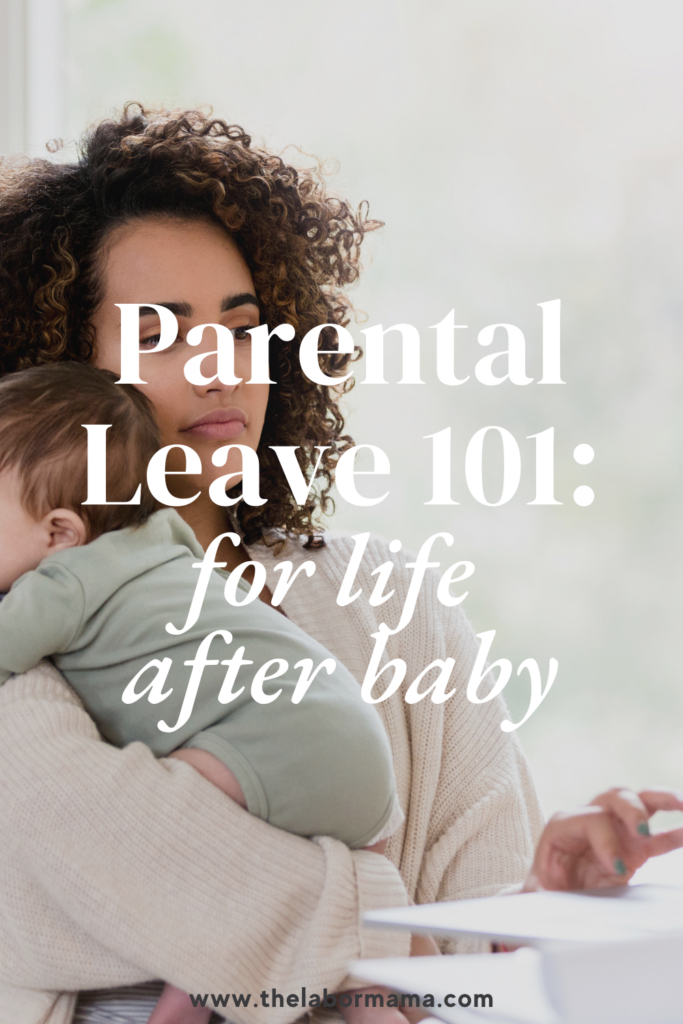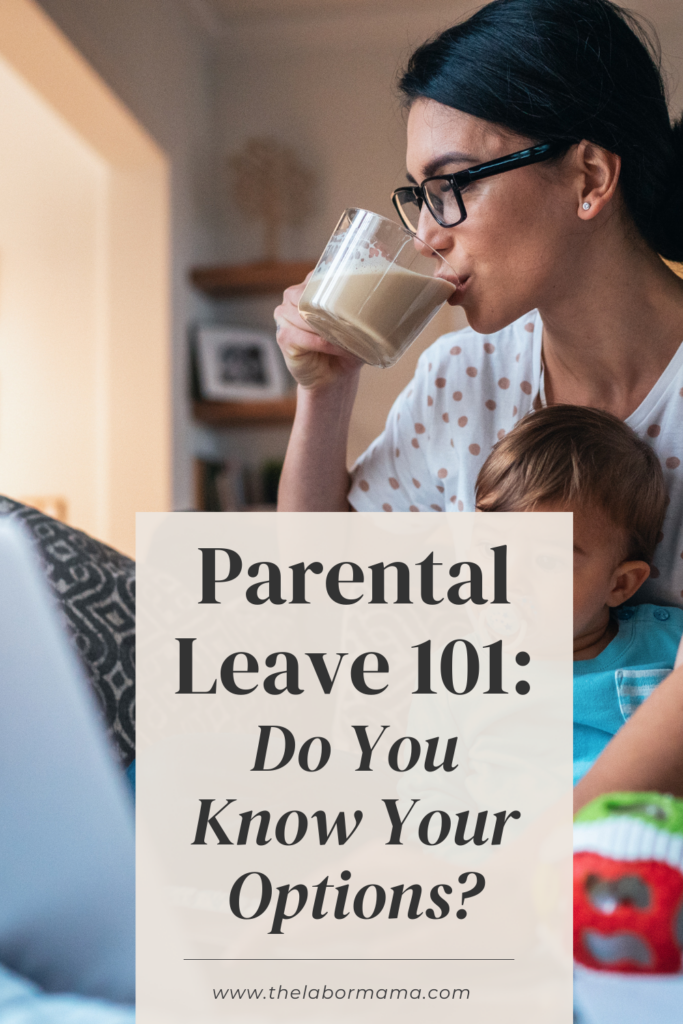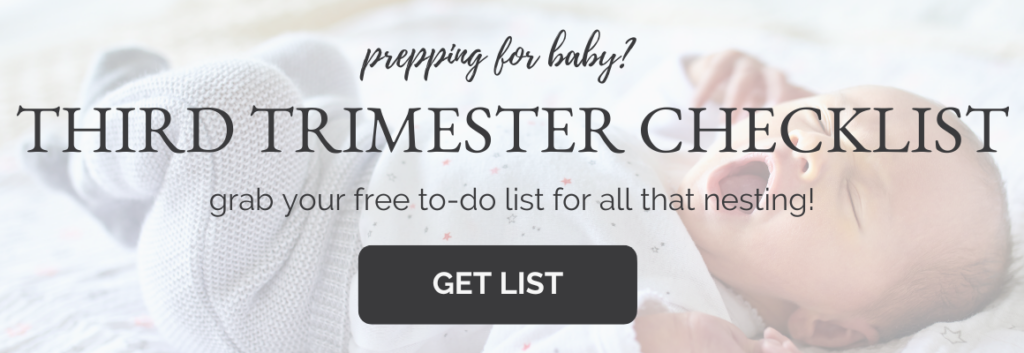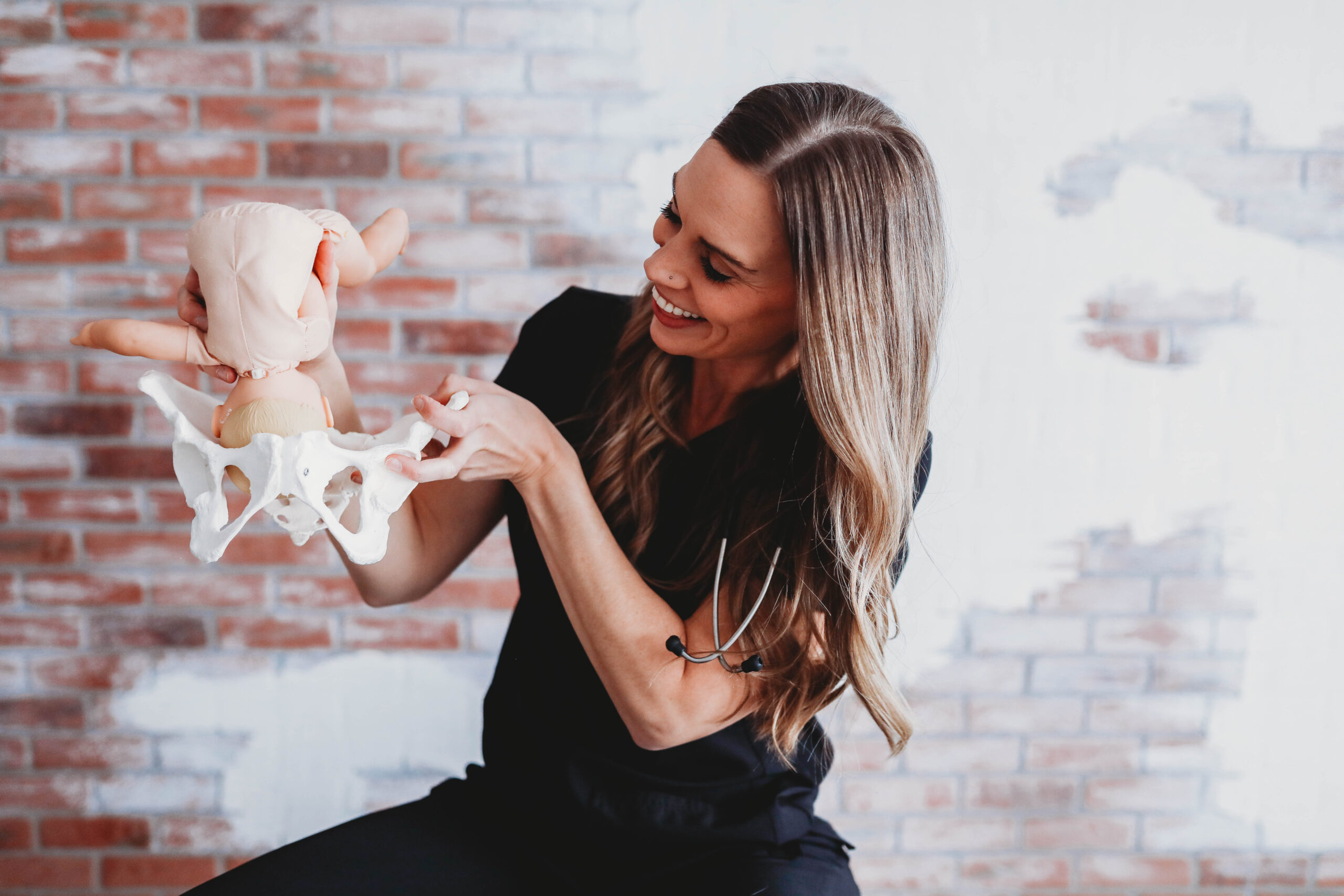Currently pregnant and wondering what the career and parenthood balance might look like once baby is here? I get it – it’s a question for so many, especially in the United States where the laws are both confusing and not supportive of working parents. Even though it should be, parental leave for your postpartum period isn’t always a given–every state has laws about leave, and every job also has different policies too. Another factor? Not all parental leave is paid leave, but some of it can be.
Let’s sort through some of this together.

Who is The Labor Mama and Why Am I Here?
Hey friend! I’m Lo – also known around here and social media as The Labor Mama. I’ve spent my nursing career in labor, delivery, and postpartum, have birthed 3 of my own babies, have labored thousands of mamas at the bedside, have taught hundreds of students online, and have even delivered a few speedy little babies with my bare hands (oops).
Here at TLM, I offer online birth classes to empower you the way everyone should be. The education + support I offer gives you experience, evidence, and empathy; you’re getting all of my years of “clinical” RN knowledge, beautifully combined with my real experiences as a mama and a nurse. These are not your hospital birth classes (those won’t do it, I promise), and honestly, birth doesn’t follow a textbook or protocol anyway – you need to know so much more than that.
If you want to connect with me further, head to Instagram. There are hundreds of thousands of us over there learning together daily.
Balancing work and life after baby
You’ve probably thought a lot about what things will be like postpartum (you’ve checked this article out, right?!), but parental leave probably looms larger in your mind than you expected it to. Even though the idea of time off from work to care for children or a baby may sound like a vacation to some people, anyone who has ever taken parental leave knows it can feel like the opposite. This is an important and much-needed time for families and ESPECIALLY for you as the one whose body just went through a massive (and beautiful!) transformation.
Despite the realities that parental leave is very much NOT a vacation and that it is very necessary (really, for both parents), parental leave still is not a given and policies are different in every state and workplace.
When you’re pregnant (or if you’re the partner), it’s important for you to know your rights, and be sure you understand what is available to you.
What is parental leave?
Parental leave is an employee benefit that allows you protected time off of work to care for a newborn, sick, or recently adopted or fostered child.
How do I talk to my boss about parental leave?
It’s never a bad idea to ask your job about your company’s parental leave policies and family benefits, especially if you or your partner are pregnant or want to start a family in the future (yes, it’s so good to have these convos before you’re ever pregnant)! It’s also great to look at these things when you’re looking to step into a new job. Even if you aren’t currently planning a pregnancy, if there’s a chance you could be someday, this policy is going to matter to you.
You can ask them things like:
- What benefits and resources are offered for expecting parents?
- What is the parental leave policy for non-birthing parents?
- Can vacation time be used to extend parental leave?
- Who should I contact to add my new baby to my health insurance, and what’s the process for doing so?
- Are there any non-leave benefits I should know about, like childcare stipends or back up childcare options?
- Is there anything else I should be doing to prepare my workplace for my upcoming leave?
- Is there a policy or support in place for coming back to work after leave?
- What kind of parental leave is available?
Types of parental leave
It isn’t common knowledge that there are different kinds of parental leave that you can take. You might qualify for more than one kind of leave depending on your state, your job, and your circumstances.
Talk to your HR department (or manager) to ask about all the types of leave that may be available to you and if different types of leave can be used together. Often, what you “qualify” for is dependent on things like how long you’ve worked for the company or how big the company is.
Some common types of parental leave are:
- Family and Medical Leave (FMLA)
- This PDF is a great starter guide to FMLA
- Short term disability
- Your job’s parental leave policy
The leave you can have or qualify for may be paid or unpaid. There are many companies that don’t offer paid leave, but some are starting to. It’s seen as more of a recruitment or retention perk than a necessary benefit that everyone should be offering, and has gotten especially popular in the tech industry as a super coveted perk. Right now, the Bureau of Labor Statistics says that about 27% of private sector employees have access to paid leave.
*Personally? As a full-time OB nurse, I had no paid leave. We were allowed to use short-term disability benefits to be paid 50% of our wages for the first 6 weeks, and then we got nothing for the second 6 weeks. If we wanted to, we could use our own accrued PTO to pay ourselves…which basically meant we went back to work with a 12 week old baby and no PTO left. ?
Why does parental leave matter?
Parental leave, especially for the birthing parent, is vital. It’s a time for you to heal physically, adjust mentally and emotionally, and prepare (as much as you can; but it’s HARD and that hard is normal and okay!) for what life will hold for you now with a new family member. Not having the proper time away from your job for this kind of leave can be detrimental, and research backs this up.
“Paid parental leave can reduce financial stress, allow parents to focus on bonding with their child, and increase gender equality (especially when fathers have more time to participate in child care duties),” said psychologist Ashley Schappell D’Inverno, PhD, a behavioral scientist in the Division of Violence Prevention at the Centers for Disease Control and Prevention. “All of these positive effects trickle down to benefit the child and the family as a whole.”
Who else can help me with parental leave?
Your tag team of support should include:
- Your HR representative (if your job has one)
- Your manager
- Other employees who have gone through the leave process
Some final thoughts on parental leave
Parental leave shouldn’t be only on you to figure out. If you have a Human Resources (HR) department, ask to meet with them to talk about what is available to you. That is exactly why HR exists! No HR? Talk to your manager. Someone should be willing and able to help you figure out what kind of leave you can take and how to maximize the time you have at home with your little one.
What kind of leave are you on or expecting? We ALL deserve as much leave as we can get (one thing that I LOVED about living in Europe was how much emphasis was placed on the mental and physical load that is postpartum; the EU has some of the most generous parental leave policies in the world!) and over here, we’ll continue to advocate for each other. I’m here if you need help before, during, or after it all. xx, Lo

More resources (and freebies!) for you to take a peek at:




